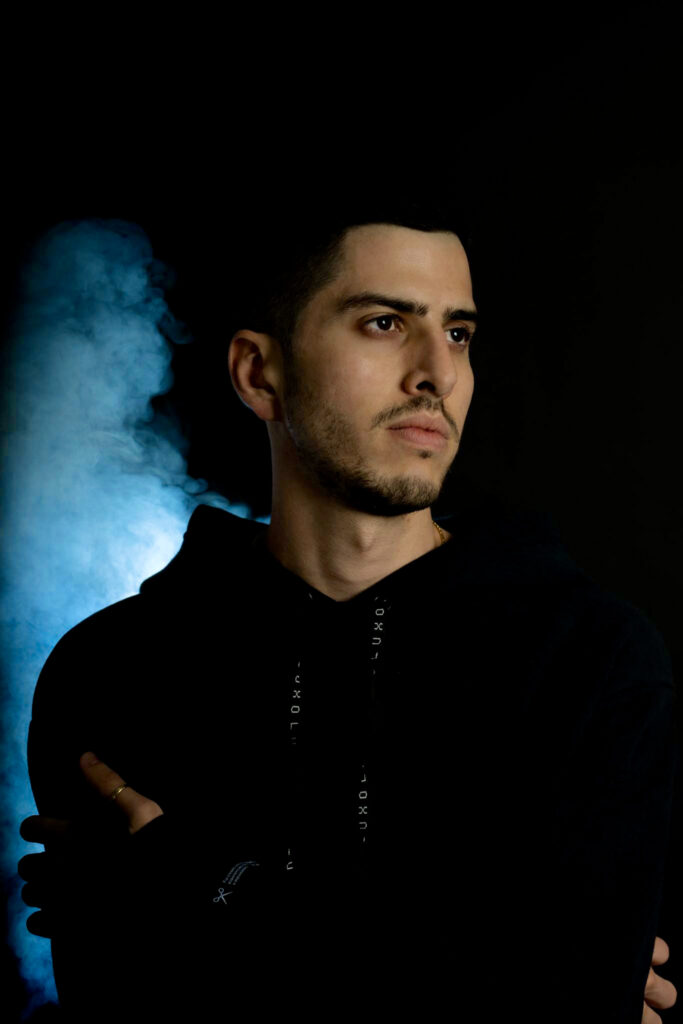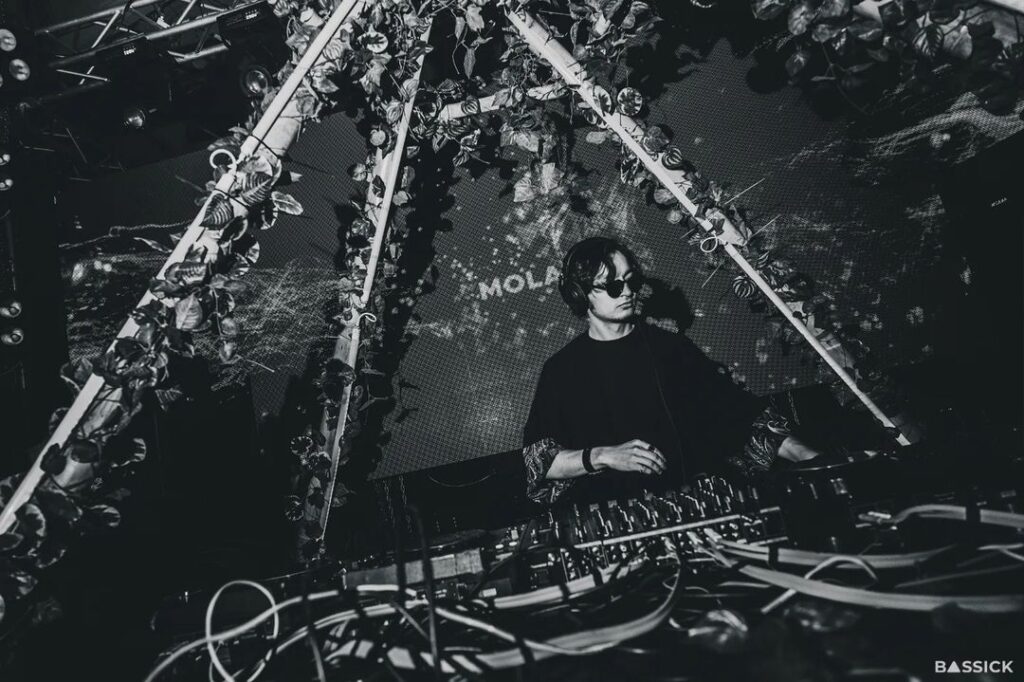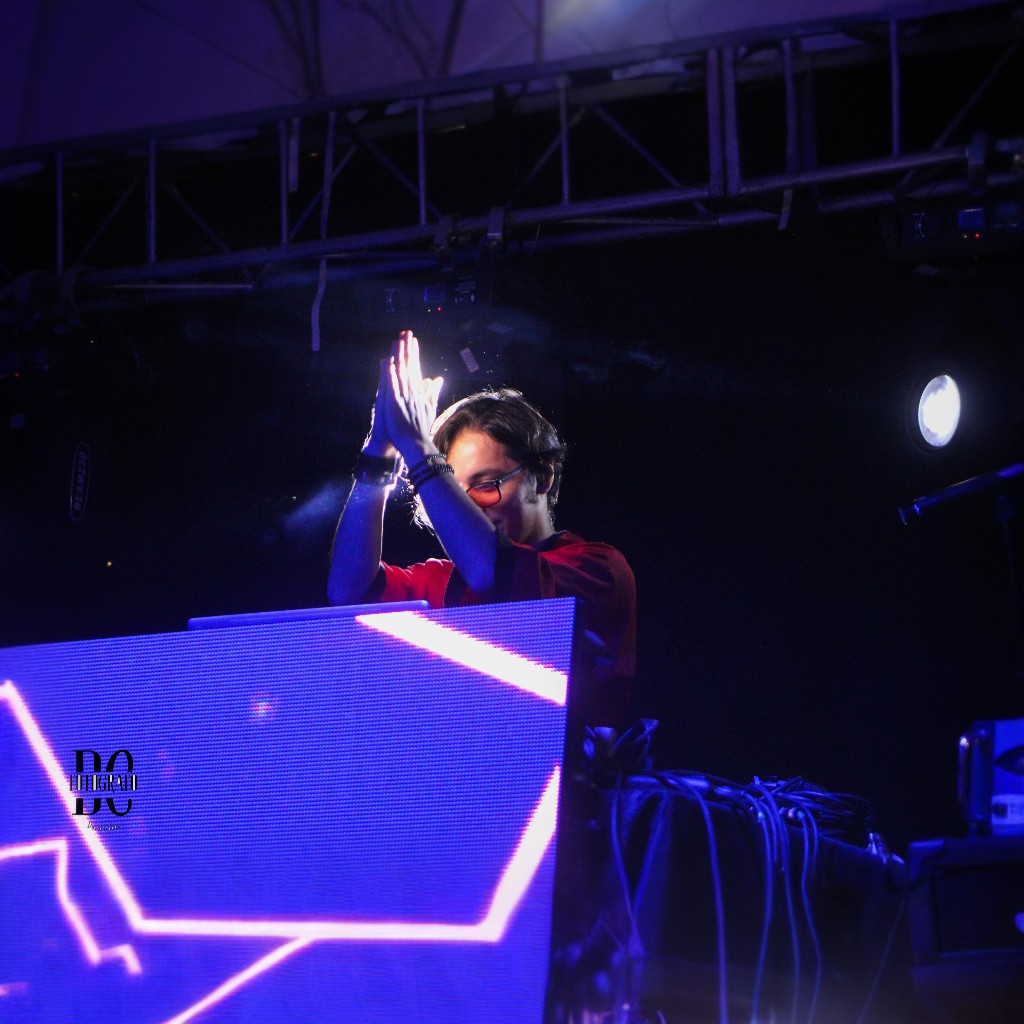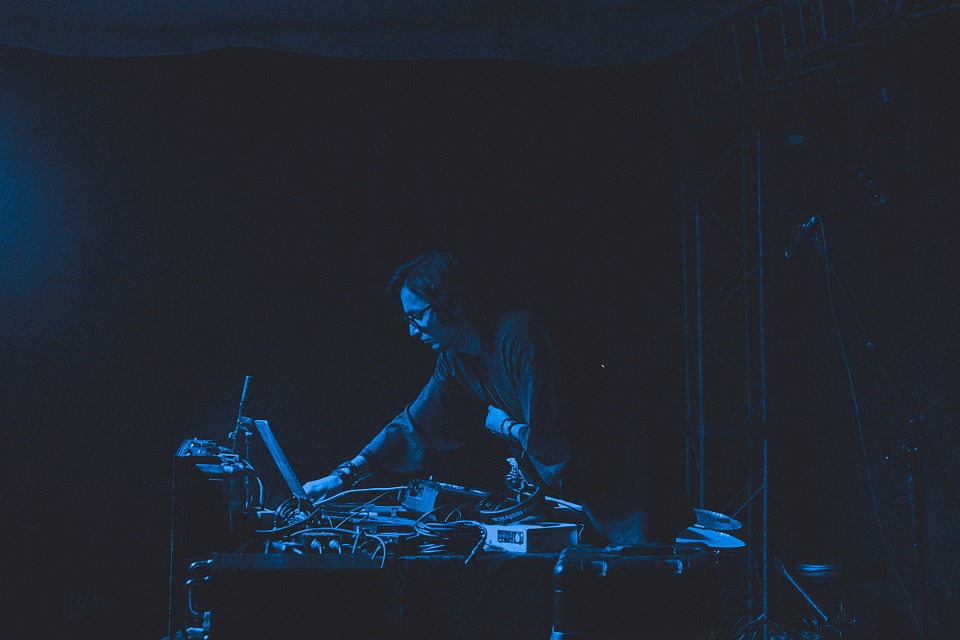We recently talked to two of the leading dance acts in the Organic House scene worldwide.
Lee Burridge’s All Day I Dream has proven time after time to be not only one of the more iconic record labels when it comes to slower four-on-the-floor productions, but also a source of inspiration for countless artists all around the world, who look up to their sound and innovative trends. Not long ago, the label released its Spring Sampler compilation, which features an incredible roster delivering gem after gem.
And of those artists, we had the chance to speak to the authors of one of my personal favourite tracks in the entire VA, ‘Magnetic‘, a track carefully crafted by Nathan Katz and Molac, two of the greatest, and also proper referents of the continent they come from, South America.
With an impressive career, at their young age both the Argentinian and the Ecuatorian-born artists have garnered respectable belts in the world of music, often playing alongside and being played by the greatest of the genre, and opening up a whole new field for those who felt like music innovation primarily belonged to the States and Europe — they’re here to prove otherwise.
‘Magnetic’ sees the two join forces after their last year ADID collaboration ‘Flamingo‘, for a track that truly delivers. We talked about it, and so much more, in the interview you’re about to read. So sit back, and feast on the coming paragraphs, as we have a talk with Nathan Katz, and Molac. Enjoy.
The Interview
(Please note, the bolded text represents a question, while the paragraph(s) following it represent Nathan’s and Molac’s answers.)
Well, thank you so much for accepting and for being here. So, first question, congratulations on the release of ‘Magnetic’! Would you like to share a little bit of the story of how this track came to be? How did it come about?
Nathan: Thank you very much! Well, yes, Molac and I actually send each other tracks from time to time, mostly for feedback or some ideas that we both like, to get each other’s opinions. And since we had already collaborated a couple of years ago, on another track that ended up coming out on All Day I Dream, called ‘Flamingo’, we went back to the same dynamic of sending each other ideas, and one of those ideas simply clicked.
I mean, we complemented each other well in terms of the work. The main idea was clear between us, about what we were looking for in the track. Basically, we wanted something groovy, but we also wanted to experiment a little with the sounds. Not to fall back on what already exists, but to find a little twist, something different.
Molac: That’s true. In fact, that was our initial idea: to try to do something different. Something that people might like, not only that fits in with the label’s sound, but also that would offer a twist on the sonic innovation we could offer. And I think, in fact, I saw in some comments that they congratulated us on the sound design we created.
Because it was basically a sound architecture in a certain way. Exploring sounds that neither of us had ever explored, but keeping it with the groove, with the focus on the track. We also focused on having this dreamy side, which, well, All Day I Dream always has this very melodic side. So we tried to complement that and ended up with ‘Magnetic’, which is actually one of my favourite tracks.
And the truth is, the compilation gives a bit of room to experiment, because it’s not 100% All Day I Dream, it’s more… It’s like a mix of various things, that’s how I feel it, against other compilations.
Molac: Well, there will be people who like it more, people who like it less. I always hear people say they really miss the sound of the past. Not just labels, but artists in general. “Oh, I miss the sound of this artist back in 2008, I miss the sound of the label from three years ago”. But evolution is as much a part of the artist as it is of the labels, and it’s a key movement. I think you can’t keep the same sound interesting over the long term. The beauty is always in evolving and finding that change.
Great. Well, going back to talking about production a little bit. Specifically with this track, were there any unconventional, unusual, even bizarre techniques you used in the production of the record?
Nathan: Yes, we used quite a few techniques. I think the most notable one was working with converting MIDI to audio. And then, working a lot with the audio file, deforming it, turning it around… deforming the sound in a positive way. It’s possible to find results that are just out of reach otherwise. I mean, working in MIDI or with certain plugins can achieve something similar, but working in audio is different in this case.
Molac: Yes, it’s crazy. Because in reality, it’s something you can’t achieve only with standard sound design, with additive, subtractive, or even granular synthesis. I think we got to the point where resampling was the only way you could build sounds without losing sonority, which is very important, as Nathan says. I mean, we tried to distort the audio, but in a good way, in the aesthetic sense of the word.
I once read somewhere that exporting MIDI to audio forces you to work with fixed parts and that it makes you grow as an artist, for that very reason.
Nathan: I think it puts limitations on you when putting together a track. It’s like saying, “Okay, I have this, I can’t go back”. This is the raw material, and I try to make it fit the track. If it fits, it fits, and if not, well, we explore something else. But the idea is that, how to limit yourself, because if you don’t have endless options, that forces you to go out there and experiment.
Now, a quick question. Is ‘Magnetic’ just the second track you’ve done together after ‘Flamingo’, or had you worked on other projects before?
Nathan: Yes, it’s the second track we released together. But we’ve tried things in between that, some of them are still in process and others maybe just didn’t quite work out. It’s all kinds of things.
Well, I guess this comes naturally now. How did you get to know each other? And since you’ve had a good relationship as colleagues, of course, how does the chemistry between you two develop as artists?
Molac: My memory is terrible. But I think it all started with an Instagram message.
Nathan: Yes, a DM. I think we were releasing music on Songuara at a similar time. Molac, I already had your track ‘Dandelion’ on repeat. And we congratulated each other on those Songuara releases. And well, that’s where we started our link. And it all came together very naturally, honestly. We’ve always had a good relationship. We were always very clear about what we wanted.
And as for working with him, it was always a pleasure for me. Firstly, because I always considered him one of the leaders of this genre. I always had him at my personal top. And he’s also someone who, aside from being a good producer, is a proper musician. You can tell he knows how to play, in this case the piano, you can tell he’s a musician. And that helps a lot when collaborating with someone because you end up learning a lot.
Look, the questions just happen to be coming at me right before I ask them so, great! [Laughs] I was just about to ask each of you what element, technique, etc., you like or admire about the other’s sound.
Molac: What I love about Nathan is the groove. He has a really, really good groove. When he sent me the ‘Magnetic’ draft, it already had a great groove. I didn’t have to modify much of anything. So, that’s really significant for someone like me who loves groovy stuff. I love creating complex grooves, complex drums, created in layers. So, when I got that, I said, “Okay, I have a good structure and a good foundation to work with and start having fun“.
Nathan: Well, in my case, there are quite a few things about Alan, but if I have to choose one, it would be his handling of the bass. Both sub and mid-bass. I love it because he always looks for something different, yet at the same time never loses the groove.
Interesting. Well, another question more or less along the same lines. How did you come to produce the style you produce today? We’d love to know the story of each of you. How did you settle on what you are and what you consume today?
Molac: Actually, well, for my part, I can talk about many things. What I’ve seen from Nathan, for example, is that there’s been an incredible evolution in his sound. He’s tried many times to find his own way around his sound, and I think he’s succeeding. Above all, to differentiate himself, which is what all of us struggle with as producers. I always try to make all the tracks I make different. I tend to use very specific sounds that are my trademark, Molac’s trademark. But I always try to find a way around them: changing BPM, trying new sounds and innovating in new styles. I can feel very Organic one day, very Housy or Progressive the next. But I always try to maintain a trademark that allows me to weave all these productions into a single story as a producer in general.
Nathan: I think what initially caught my attention about this kind of sound and style within electronic music was roughly seven or eight years ago, when I heard the first tracks by Volen Sentir, Sébastien Léger, on All Day I Dream. What caught my attention most was the evolution in terms of musicality. I’ve always really liked film score music, and I found that complexity there. And also the percussive aspect, with real, played percussion, not something synthesised. It was the combo that caught my attention. And well, from then on, I didn’t stop following the label and trying to produce something similar until, little by little, I found my sound.
Molac: That’s true. I think the best way to learn to produce is to first copy and then improve yourself, and try to find what you have in your head. When I’ve taught lessons, when I’ve tried it myself, the best way has been to copy and improve. Which is ultimately a very good technique. It may not be the advice someone expects, but it’s one of the best options to easily learn how tracks are crafted.
Nathan: Yes, or remake a track. Trying to recreate a track you like, even if you’re not going to release it, serves as practice.
I haven’t gone as far as recreating songs, but I have started working with Serum, for example. To be able to recreate sounds. And yes, honestly, it opens your mind. Okay, next. What do you think about working with All Day I Dream? I recently spoke with Wassu, and he told me that it feels like a family of close, united people. Do you share that view?
Nathan: Yes, I completely agree. It’s like a family, a community formed several years ago, that shares the same message, which is what the label also tries to convey: unity, a different kind of music, for different kinds of events as well. For example, they tend to hold their events during the day, which, well, maybe others didn’t do that much before, and since then certain parties and labels started doing daytime events, it became very fashionable in the industry. And I think that’s basically what the label tries to convey, which is to create a community of followers who, in addition to the music, share that message, which I think is incredibly important.
Molac: Yes, actually, my dream has always been the same. One of my dreams as a producer was to release on All Day I Dream. I achieved it last year with Nathan, and today is an honour for me again, actually, with one of my favourite tracks, as I previously said. And it was actually one of my dreams because you could see a completely different approach within the label. Not just in the showcases, in the music, in the message they conveyed. And it’s something they’ve maintained over time, and I hope it never changes, because it’s truly the heart of the label. There are no labels that are truly inspired by the human side. Aside from being very transparent too.
Well, there’s a question I love to ask, let’s see if you dig it. Do you remember a moment in your career when you felt like what you were producing at the time — a loop, a bar, or whatever — had the potential to take you to another level, one you hadn’t reached before?
Nathan: Story of my life! Yes, it happens to me often: I have a loop, a 30-second, or a minute-long idea, that feels complete, and sometimes what I struggle with the most is how to put together the story based on that idea. But yes, I’ve felt frustrated a thousand times, unable to finish certain ideas, but I feel it’s also part of the process, and if it doesn’t work in this project, it will work in the next. You learn a lot all day long, I used to worry more about it. Nowadays, I try to take it more calmly.
Molac: Yes, the typical “It’s this way, and I have to go this way” feeling. Yes, it’s happened to me many times. I’ve actually taken that path many times, and I’m probably still on that path at some point. Now that my sound has evolved a lot, I’ve moved toward a slightly more Progressive, even more experimental, and much more atmospheric branch. And it’s actually hard because even though you have that initial flash of saying, “This is the way to go“, maintaining it, trying to completely change and say, “Okay, now I’m going to do this“, is very, very complex. It takes a long time to click, it takes a long time to also get to know the part of yourself that has something more to offer than what you’ve already been doing.
Believe me, it’s very easy as producers to stick with the same sound for three or four years because it’s what we’ve always done. But setting ourselves those challenges, trying to change course sometimes, to take that fork, that new path, is what really makes this interesting and makes it worthwhile to go into the studio every day.
I love it. Well, now I’ll give you my personal opinion to see if you agree. It seems that in the sphere of Organic music, which is, let’s face it, a genre that easily disappears amidst the sea of Progressive House we have today, that space once occupied by Russian Organic House, which is somewhat vacant today, is starting to be occupied by Latin American Organic House. I don’t know what you think, if you think there’s a sort of Organic House movement from the American continent in general.
Molac: That’s a very good question. It’s funny, in my early days I was inspired by Russian Organic House entirely. In fact, Nathan was also very inspired by that.
Nathan: Without a doubt. Volen Sentir, Izhevski, PROFF, there are so many acts.
Molac: However, I think we’ve also managed to add our own touch from the Latin American side. We have something different, something that’s even cultural, right? The roots are different. So that’s what the sound conveys. I don’t know if the Latin American movement is fully occupying that space, but it’s definitely growing. And that’s something I always appreciate. Not just in Organic music, but in Progressive music as well. And it’s very nice to see it happening.
Nathan: Yes, melodic music in general is growing a lot throughout the Americas.
Wonderful. I wanted to ask you about that, because for me, you’re precisely part of that team that’s leading it. I don’t know if I should call it “change,” but a new space, let’s say. It’s like an Organic movement that isn’t 100% Organic, but rather something with a robotic accent to it. ‘Magnetic’ has those aspects, for example.
Nathan: Well, I’ve always felt that with the label of Molac and a couple of other Latino producers, which is Sendas Music. I feel like it’s a union of several producers from different Latin American countries who came together precisely for the purpose of releasing, of having producers who can make records from elsewhere, but representing Latin America and joining forces to be heard.
I had a question written down about Sendas! I’m a huge fan of the label. From their first releases, from the unofficial stuff, to the original tracks they’re releasing today. What they’re doing is incredible. Molac, what was the initial idea? Was it specifically to create a space in Latin America, or was it something just between you guys, and then it just became a label? How did the story of Sendas come about?
Molac: Look, it actually all started as a collective of Latin American artists. There was Dulus, who’s from the Dominican Republic, Alberto Hernández from Mexico, Nicolás Viana and Lucas Zárate from Argentina, and I was in Ecuador. What we did first was create a collective, in a way, because we had a lot of edits that couldn’t be released officially, but that could be released on Bandcamp, and we were dying to do so. We ended up doing it. Nathan even released one of his edits there, which I love.
We were gradually inviting artists, and when we realized that the label was growing, and that not only the label had grown, but also the Latin American community, and not only that, but even internationally, people knew us as the Sendas collective, we knew that maybe we should go public, so to speak. Start releasing our own original music.
We’re in that process; it was very difficult at first, but we continue trying to grow in that space, which, in the end, is a borrowed space. You never know how much longer we’ll be here. But bringing value to people, bringing music with intention to people, I think, is one of our greatest goals.
Music with intention, I read that in a biography of yours somewhere. I like that phrase.
Molac: Yes, it’s one of my mottos because in the end, I believe that if your music doesn’t communicate or is only made for the dancefloor but without any intention behind it other than to sell, it’s pointless; it ends up being a job. Art, music as such, is certainly an industry, but it also has a very large and very important artistic component, and I think no one, none of us producers, should leave it aside. In the end, when I open my Spotify for Artists and see two or three people listening, I think to myself, “My music is brightening someone’s day right now, making them dance or making them smile“. And receiving many of these messages tells you, well, there’s much more than an industry behind it; there’s an intention, too.
It’s something I really like about the artists I interview. With the experiences I’ve had, I’ve found that I can create a somewhat different space. And the truth is that in a world where, of course, music prevails, but in reality, it seems like today it’s more about marketing than anything, I think it’s important to be able to highlight certain artists like yourselves who produce from the heart and whose goal is, first and foremost, to satisfy you and then see how we’re doing with the metrics.
Molac: Exactly.
Nathan: Yes, I agree, the priority is always that we like it. If it passes that big filter, if it really moves you or does something to you, then it’s a success and someone else will like it.
Molac: It’s true. I think that many times, as producers, we focus a lot on metrics precisely because everything is much more industrialised now, and what do I know? There are tracks that I love, they’re some of my favourites, but maybe they don’t chart as much, don’t sell as much, don’t get played as much. But some people write to me and say, “Thanks for releasing this track because I really needed it“, and I say, “Well, if someone liked it, I did my job as an artist“.
Nathan: And that too. I think people, the public today, value the work much more than before, a track with a lot of process and all that. I think people value the musical part too, and it’s something that makes you want to keep doing it because people receive it very well.
It’s almost paradoxical to think about that, that everything suddenly became so commercial that the small group that was left enjoying the little details is now growing again. It’s like being popular isn’t so popular anymore, if you can even call it that. It’s interesting to see, especially in genres like Organic and Progressive, that the general public values Extended Mixes. It’s still difficult to beat the popularity of Radio Edits in other genres.
Nathan: Yes, today there are only a few labels that continue to release Extended Mixes; in fact, most are only releasing Radio Edits on Spotify.
Molac: It’s a problem too, and I understand the labels in that sense. You have to adapt to what people demand in a certain way without obviously abandoning who you are, but well, that’s not without its consequences. If we lived only from the artistic side, we producers wouldn’t see a penny, and we wouldn’t be able to continue living, because in the end, our life goal is to make a living from music, right? So, look, it’s true, many of us don’t like doing that marketing part, that part where the label asks for a Radio Edit, to make a promo video like this, etc. However, I think as artists, we shouldn’t deny that; we have to understand that it’s part of adapting our music.
Look, we probably spend a whole week finishing a given track’s nitty gritties, racking our brains, maybe even longer, and sometimes all we want to do is simply publish an IG story and that’s it. However, I understand that part of the marketing has to be behind it because it’s also part of showing and highlighting all the effort we’ve put into achieving that sound, working well, and achieving decent quality.
Now I ask, how easy or how difficult has it been for you to build your musical career so far? Do you think living in South America has played a role, let’s say, in the difficulty of making yourself known? Being far from the United States, being far from Europe, or whatever?
Nathan: Well, yes, geographically speaking, I wasn’t born in the ideal location, you could say, but at the same time, I feel that in my case, Argentina is one of the world’s musical powerhouses. I’d say, in terms of the Progressive genre, in the last 5 or 6 years, there have been a lot of parties in all the cities of Argentina, so you could say there’s a big scene here, everything that involves Progressive music, Techno, underground Electronic music in general.
I don’t think that is a valid excuse that, because you were born in a certain place, you couldn’t go far. I mean, obviously in some places you have a certain reach with certain people, but nowadays you can make a name for yourself, wherever you are, with a computer, in a room. I think it’s more like that, in my case at least.
Molac: Well, as a producer, it’s in a way a little easier to open up to the international world. I think the tricky part comes when you’re being a DJ and having to play shows. In my case, it’s been very difficult because there isn’t much Organic or Progressive music in my city. I live in a very small city, not even in the capital of Ecuador. But no one is a prophet in their own land. In the end, much of the growth I’ve had as an artist has come from travelling to my country’s capital, meeting many groups that like this type of music and truly value what you do.
I always feel very welcome going to the capital because they know me, they know the labels I’ve signed to, they know my career, and it’s a journey that takes a lot of effort, a lot of rejections, a lot of no’s, knocking on doors and not getting them to open for you — it’s very complicated. And I think it’s always going to be difficult to be an artist. No matter where you were born, you’ll have a certain degree of ease somewhere else, but being an artist is very hard, and it’s a feat that can’t be taken away from anyone.
I love these reflections, thanks guys. I have three questions left. The first is, what would your lives be like if you weren’t in music today? What would you be? What would you do?
Nathan: Wow, the hardest question. Honestly, I really don’t know, I mean, I’ve considered having a second job at one point, but these days I really struggle to see a life without dedicating myself to what I love most.

And any career or something you’d have left behind or that you had a desire to pursue before getting into music? For example, I would have dedicated myself to science.
Molac: I know of one career, which is marketing. In fact, I’m still pursuing it. You could say marketing is my hobby, and making music is what I truly dedicate myself to, not the other way around.
Well, we come to my favorite question. If you could travel back in time, say 5, 10, 15, 20 years, whatever you feel comfortable with, and meet your past self, what would you tell them? Was there anything you worried about much more than was necessary?
Nathan: I would tell him to trust what he believes in. I remember that’s something I’ve held onto throughout my life. From the moment I wanted to dedicate myself to this until today, I’ve truly believed that I can make it. So, basically, I’d tell him that: to keep believing and keep working, that at some point, things will happen just as he always thought.
Molac: Well, if I went back, I would tell my past self that everything happens in its own time and not to be afraid of making mistakes, because that’s the only way to learn.
And well, I’ll throw out the last question. Suppose there’s someone in the audience who admires your work, what you do as producers, making a living from music, the sound you have, and who also aspires to be a producer. If you had the chance to give them advice, what would it be?
Nathan: The only advice I would give them is to be authentic to their tastes, to their essence, and that it’s a long process, a way of life, I would say, but the key is not to give up.
Molac: I think any advice I could give them wouldn’t be as valuable as the insight they’ll gain when they truly find themselves along this path — both as producers and as artists.”
Well, that officially concludes the interview. Thank you very much, guys!
-End of interview-
Final Words
Guys I can’t thank you enough. From the get-go, the atmosphere of the chat was so warm and friendly, our time together flew by. And the result of such a warm interview that doesn’t necessarily have to feel like so, is a deep dive into any and everything. Thank you so much to both Nathan and Molac for their willingness, sincerity, and the motivation to keep climbing. You truly are among my referents, and I know I’m not alone in this one.
Stay tuned to our page (and this very corner) for more conversations like this!










